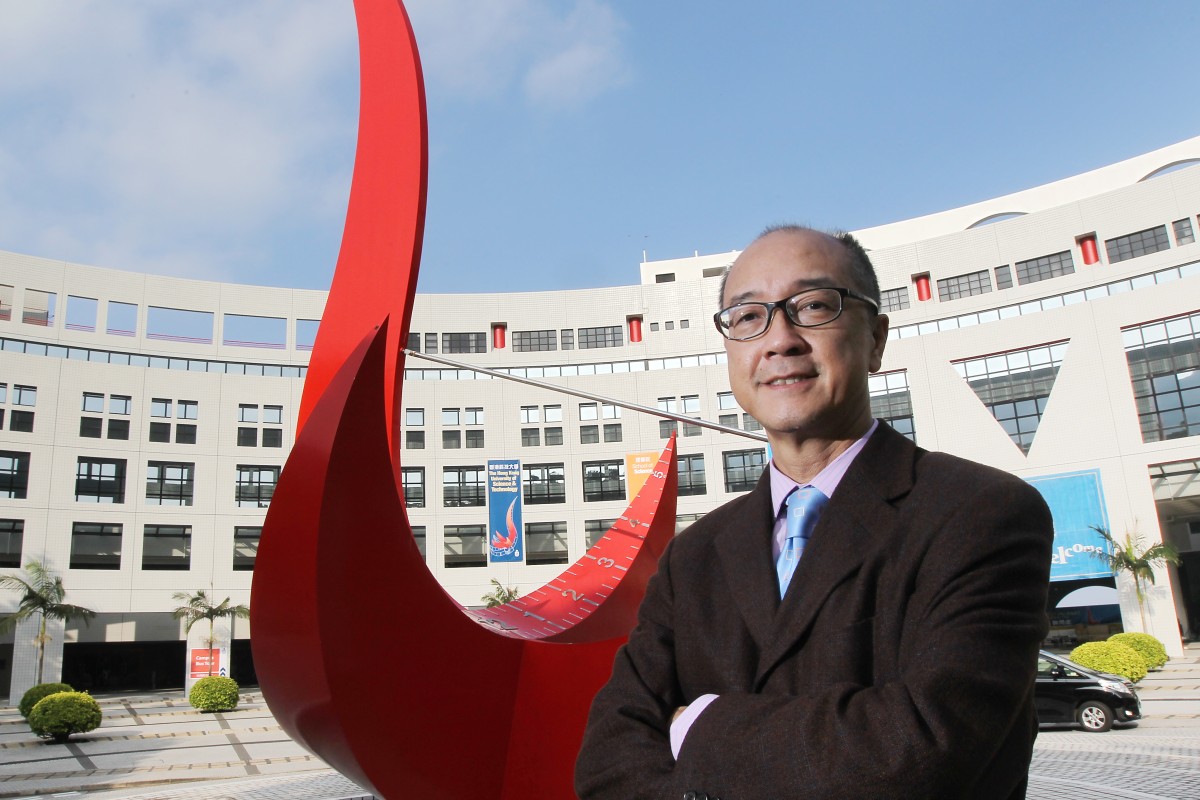
A visit with HKUST president Tony Chan, the power in the ivory tower
From life in a fishing village to the prestigious halls of Stanford University, HKUST president Tony Chan talks about his journey to the top
 Professor Tony Chan says the greatest skill a student can learn is self-reliance.
Professor Tony Chan says the greatest skill a student can learn is self-reliance.Professor Tony Chan Fan-cheong of the Hong Kong University of Science and Technology does not speak with the gravitas of a respected academic or president of a major university (he is both). Instead, he has the warm and honest sincerity of someone who cares. He spoke to young Hongkongers as part of the Commission on Youth, and Young Post caught up with him after the talk.
Chan grew up in A Kung Ngam in Shau Kei Wan, where his father was the only university-educated person in what was then a small fishing village and quarry. His home had none of our modern luxuries, such as air-con, hot water, or a fridge.
"It was a village. The people were fishermen and stone quarry workers, our neighbours were blacksmiths. Education wasn't something highly emphasised," he says. "Nowadays people send their children to tutors. Back when I was in school I would tutor other kids for pocket money."
He studied in Salesian English School up to Form Five before going to Queen's College.
"When I first [tried to get into] QC, I didn't even get an application form because my grades were too bad. It was after term started that a friend there told me there was an empty seat in his class and suggested I try again," Chan says. "I had nothing to lose and gave it a shot. I became a student there a week after term officially started."
It was a lesson that stuck with him. "If you try, you might fail. If you don't try, you will fail," he recalls.
After Queen's College, Chan was offered a place at the University of Hong Kong medical faculty, but turned it down. "I wasn't interested in medicine," he says. "I thought I would do better in maths."
It was another important lesson for him, one that he hopes today's students can learn from as well. "Know yourself to grasp your future. What field of study I was in wasn't important. What mattered was I choose something that suited me," he says.
But when it was time for him to choose a major, he realised he wasn't good enough at maths either, so he took engineering. He headed to the US to continue his studies, and earned a bachelor's and a master's degree at Caltech. Then, on the suggestion of a professor, he moved to Stanford University to work on his PhD. "Back then computers were a new thing. The teachers [didn't even have] books or materials to teach from."
But entering a new field left Chan with another important lesson to share: "Be a leader, not a follower."
In Chan's time, only one per cent of local students went to university. Today it's around 18 per cent, and Chan believes this experience puts them in a different class. "University students are elite. They should propel society forward and not just think about getting a job. They need to set their sights higher."
But goals and passion should still have a touch of realism.
"If I have to choose between a passionate but untalented student, or a talented but dispassionate student, I would pick the latter," he says. "You can inspire passion and interest but talent is natural. It's like if you asked me to become a violinist or professional basketball player. I'm just not cut out for it."
For Chan, the greatest skill a student can learn is self-reliance. "At the end of the day, it's not your parents' life. It's your own life and you should be responsible for it," he says. "University should teach you to ask questions and understand advice, but ultimately to think independently, make decisions for yourself, and bear that responsibility."
He is optimistic as he gives his final piece of advice to young Hongkongers: "This generation has a better, more beautiful future. Look at Asia or Africa 40 years ago compared to now. This society has given them much and they still have chances. The world is coming to Asia, the only problem is grabbing that chance."
